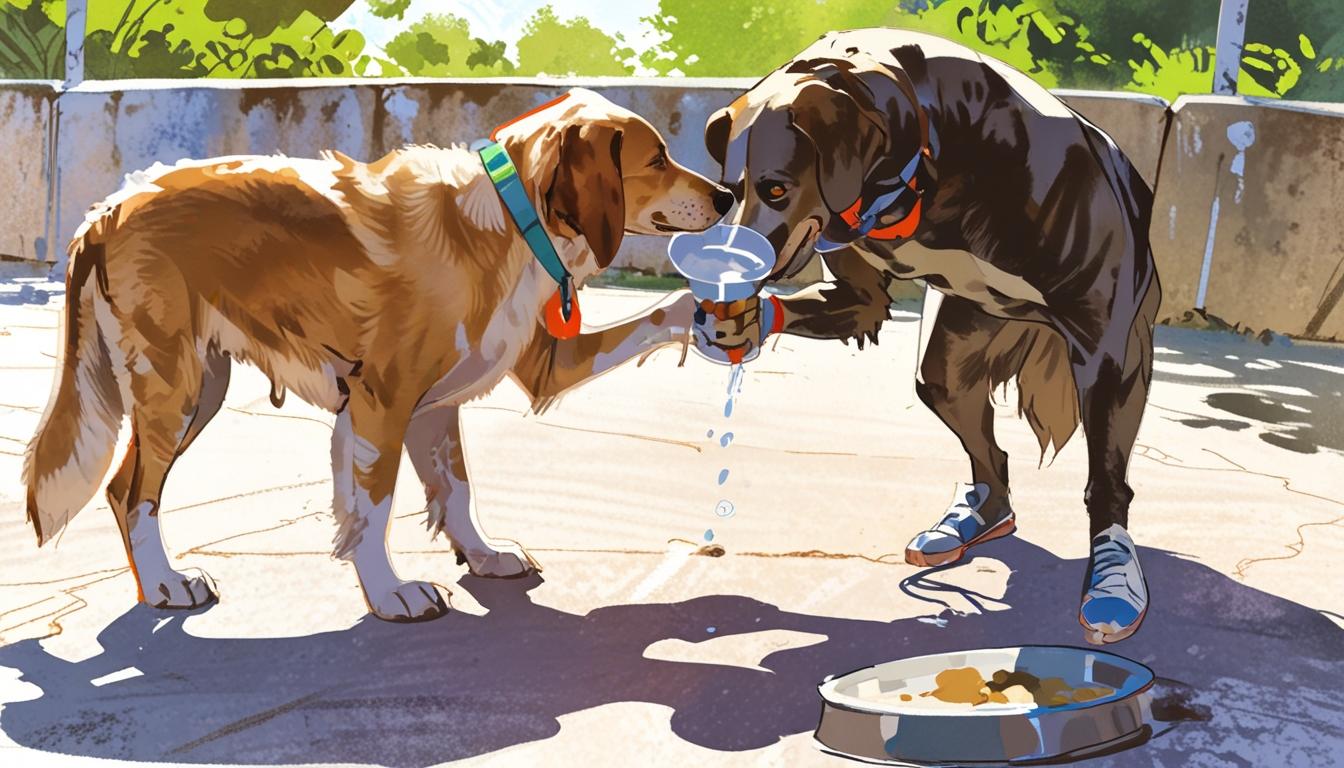On a sunny day outing with your dog, a seemingly kind gesture of offering water from a communal bowl at a café may carry hidden health risks for your pet. Although water is vital for a dog’s hydration and temperature regulation—particularly since dogs rely on panting rather than sweating to cool down—shared water bowls can become hotspots for harmful bacteria and viruses that could potentially lead to illness.
Dr Jacqueline Boyd, a Senior Lecturer in Animal Science at Nottingham Trent University, highlights the importance of maintaining clean food and water bowls for dogs. She explains that these bowls should be washed at least daily with hot water or in a dishwasher, as they can harbour antibiotic-resistant bacteria such as Escherichia coli. These bacteria pose a health risk not only to dogs but also to their owners through possible transmission.
One notable health concern involves the methicillin-resistant Staphylococcus aureus (MRSA), a bacteria implicated in skin and soft tissue infections. It can spread between dogs and humans through shared water or food bowls, making hygiene crucial.
Beyond bacterial infections, shared water bowls can also facilitate the transmission of respiratory diseases like kennel cough—a respiratory illness distinguished by a persistent dry, hacking cough. Kennel cough spreads rapidly among dogs in close quarters and can be caused by various agents such as Bordetella bronchiseptica and canine influenza virus. Contaminated objects including water bowls, toys, and bedding are commonly implicated in spreading the infection. Such infections are complex to diagnose and treat due to the diverse pathogens involved.
There is an additional risk posed by adenoviruses, which dogs might catch from faecal contamination of communal surfaces or bowls. These viruses can lead to hepatitis and respiratory conditions that threaten canine health.
Dr Boyd advises owners to be particularly wary of shared water bowls for dogs that are more vulnerable to infections—such as puppies, unvaccinated dogs, or senior animals—and also in households where people have weakened immune systems. She reflects on the challenges of preventing dogs from drinking from puddles or other unsanitary sources, emphasising that bringing one's own water and bowl while outdoors is a straightforward way to mitigate the risk. Alternatively, if a communal bowl must be used, ensuring it has been freshly cleaned and refilled can help protect your dog’s wellbeing.
This detailed information on pet health comes amid increased attention to responsible pet ownership practices. The original article was published in The Conversation under a Creative Commons license and reported by The Independent.
Source: Noah Wire Services
